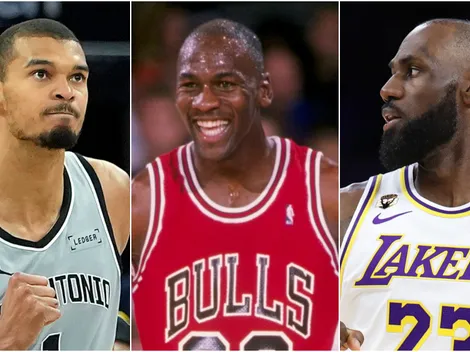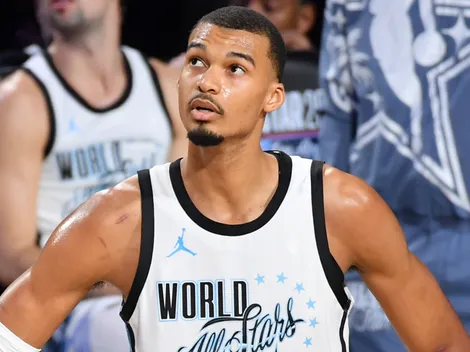San Antonio Spurs’ rising star Victor Wembanyama has become one of the latest players to weigh in on the NBA’s new All-Star Game format. Fresh off a dominant 114-94 victory over the Portland Trail Blazers—a game where he set the record for the most three-pointers by a young player—Wembanyama voiced his dissatisfaction with the current changes and his preference for the traditional East vs. West format.
“I’m personally wondering how to put competitiveness back into the All-Star game,” Wembanyama remarked postgame. He elaborated on his desire to see the game return to its competitive roots, emphasizing, “When I set foot on that court, though, I’m gonna be competitive for sure. But I don’t think nothing beats the old-school East-West format.”
Wembanyama’s comments shouldn’t come as a surprise, given his mindset as a fierce competitor. The 20-year-old Frenchman exudes a throwback mentality, bringing an all-business approach to every game. His focus on substance over spectacle reflects his broader perspective on the state of the league.
Wembanyama has been the centerpiece of a resurgent Spurs squad this season, guiding them to a solid 15-13 record. His remarkable individual performances underscore his value, with averages of 24.7 points, 10.0 rebounds, 3.9 assists, 1.1 steals, and a league-leading 3.8 blocks per game during the 2024-25 campaign.

Victor Wembanyama #1 of the San Antonio Spurs looks on as they play the Dallas Mavericks at American Airlines Center on October 24, 2024 in Dallas, Texas. The Dallas Mavericks won 120-109.
The impact of Victor Wembanyama on the NBA’s competitive culture
Wembanyama isn’t just rewriting the record books; he’s sparking conversations about the NBA’s future. His stance on the All-Star Game format transcends the event itself, raising questions about the balance between entertainment and competition.

see also
Spurs' Victor Wembanyama reaches NBA feat in less time than Stephen Curry and James Harden
A nod to “Old-School” values
Wembanyama represents a rare blend of innovation and respect for basketball’s roots. His preference for a more competitive All-Star Game harks back to a time when the event was seen as a showcase of pride and effort rather than an exhibition. This philosophy echoes the “old-school” approach of legends like Kobe Bryant and Tim Duncan, who treated every opportunity on the court as a platform to excel.
Shaping the NBA’s future
As a key figure among the league’s next generation of stars, Wembanyama’s perspective carries significant weight. His call for a more competitive All-Star Game could inspire similar sentiments among his peers, potentially leading to a return to the classic East vs. West format with added incentives for players to take the game seriously.
At a time when the NBA grapples with balancing its identity as both a global entertainment brand and a bastion of elite competition, Wembanyama’s voice adds a compelling layer to the debate. His influence might usher in a new era where talent and intensity coexist, even in the league’s most celebratory events.





